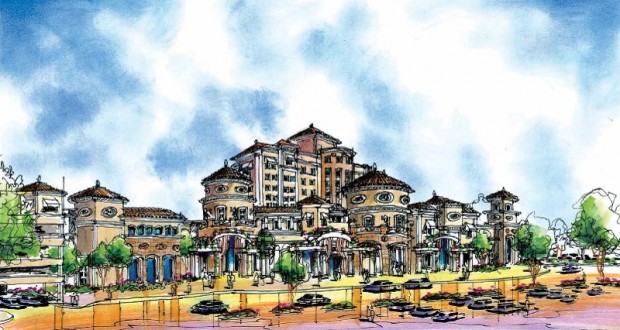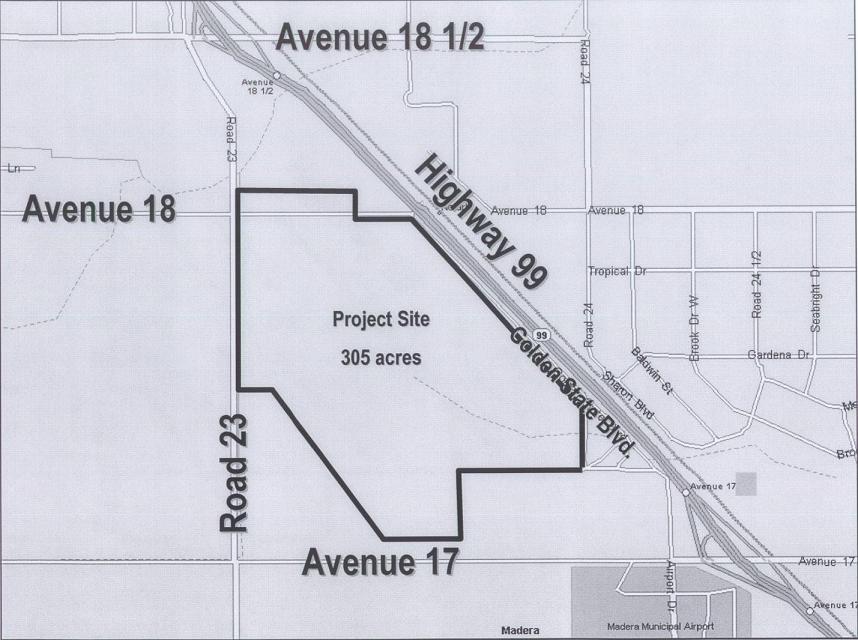MADERA COUNTY – It has been more than a year since a California ballot referendum delayed the groundbreaking on the North Fork Rancheria of Mono Indians’ planned casino on Highway 99 just north of Madera.
The project is once again moving forward after the State of California chose not to appeal a federal judge’s ruling that the State has failed to negotiate in good faith with the Tribe.
Judge Anthony Ishii, U.S. District Court in Fresno, handed down the ruling on Nov. 13, 2015, ordering that the State and the North Fork Tribe conclude a compact within 60 days.
Members of the Tribe met with County Supervisors and Madera City officials last week to work out details of how they will move forward locally, and are also meeting with State officials.
For over a dozen years, the Mono Tribe has been working toward the goal of building their own casino. After their land in the North Fork area was deemed unsuitable for tribal gaming, they applied to the U.S. Department of the Interior to have 305 acres north of Madera taken into trust for the purposes of gaming, and in 2011, the application was approved by the Secretary of the Interior.
In August 2012, Governor Jerry Brown concurred with the decision to accept the land into trust. The California State Legislature then passed AB 277 in June of 2013, thereby ratifying the compact that had been negotiated between the Tribe and the State, and in October 2013, the North Fork Compact was published in the Federal Register.
However, there was continuing opposition to the Mono casino project from several entities who worked to put it to a vote of the people through the referendum process. That door was opened when AB277 failed to pass by a 2/3 majority when it was ratified in the legislature.
Stand Up California! was joined by Table Mountain Rancheria, the Chukchansi Gold Resort and Casino, the Chukchansi Economic Development Council and others to collect signatures and put Prop. 48 on the November 2014 ballot. The move was aimed at overturning the legislature’s ratification of the Tribal-State compact.
On Nov. 4, 2014, California voters rejected the Indian Gaming Compacts Referendum, (Prop. 48) to ratify the North Fork compact, along with that of the Wiyot Tribe. According to court documents, the State of California then refused to recognize the existence of a valid Tribal-State compact with the North Fork Tribe, and the Tribe filed suit, challenging the validity of the referendum, and asking the Court to compel the State to negotiate.
In his Nov. 13, 2015 ruling, Judge Ishii stated that the State refused to enter into negotiations with North Fork regarding a new Tribal-State compact, having concluded that any attempt “would be futile,” given the results of referendum vote.
Documents filed by the Tribe presented arguments that National Indian Gaming Commission (NIGC) regulations require that if the state allows gaming for Indian tribes, and if a tribe has land that has been approved for gaming through the NIGC and the Department of Interior, the State must enter into a compact with the Tribe. The judge agreed, and ordered them back to bargaining table with 60 days to agree on a compact.
Maryann McGovran, Tribal Chair for the North Fork Rancheria of Mono Indians of California, is optimistic about the negotiations. She notes that one sticking point will likely be the Tribe’s assertion that they should not be subject to the referendum process, or ratification through the state legislature.
“Not all states have this ratification process,” says McGovran. “In other states where gaming is allowed, the governor just signs the compact. That’s what it states in the Indian Gaming Regulatory Act. It’s about all tribes being treated fairly, and in other states, tribes don’t have to go through the ratification process.”
McGovran anticipates that since the State can’t agree to ignore their own rules as relates to ratification, the issue will be sent to a court-appointed mediator at the end of the 60 days. The Tribe will negotiate with the State through the mediator, who will then submit an agreeable compact to the Secretary of the Department of Interior for a final decision. McGovran expects the process to take about six months.
The Nov. 13 district court ruling is the last major hurdle facing the North Fork Tribe, who have been going through this process for over a dozen years. They do have one more case pending in a Washington, D.C. court, however, wherein the Chukchansi Tribe and Stand Up California! are asking the court to set aside the 2011 decision by the Secretary of Interior to take the 305-acre parcel into trust.
“We have a lot of preliminary work to do while waiting for that decision out of Washington, D.C.,” says McGovran who is cautiously optimistic that they will receive a favorable ruling, and expects a decision by the end of January. However, she has learned through past experience that “you just never know.” In the meantime, the Tribe continues talks with local, County and State officials, and work on administrative details.
In the original compact with the State, the Mono Tribe had agreed to share profits with the Picayune Rancheria of Chukchansi Indians until 2020, in order to mitigate any adverse affects to the bottom line at the Chukchansi Gold Resort and Casino in Coarsegold. However, that obligation would be null and void if the Chukchansi pursued any legal action to stop the Mono from building their casino. The Chukchansi filed suit to do just that, so the issue of profit sharing is now off the table, along with those payments estimated at $3 to $5 million a year.
The Tribe is partnering with Station Casino, and initially planned for the project to include a hotel.
“We’re going to have to start with a scaled-down facility and phase up from there,” says McGovran. “What we were talking about 12 or 13 years ago is going to cost a lot more to build now.”
Starting with a gaming floor, a food court and restaurants, the casino is expected to provide 900 to 1,000 jobs when it opens. After a look at demographics and performance of the business, they will evaluate how to proceed with the build-out. McGovran says they will likely top out at around 1,500 jobs. The initial construction phase is expected to create jobs for about 750 workers.
“It’s a different day for us right now,” says McGovran. “We’ve had to spend the last 13 years in litigation, and have big bills to pay that we never anticipation. A lot of grandiose ideas we had we may not be able to do right off the bat, but we’ll eventually get to it.”
McGovran says the Tribe is negotiating payments to the City of Madera and the County to mitigate the impact of the casino and contribute financially to the services required.
“We want everybody to understand that North Fork Rancheria is committed to being good partners,” she says. “We have full intentions of honoring everything we anticipated doing with this project, including any obligations concerning the impact that the casino will have on the community.”
She also says the meetings with local officials have been encouraging and productive.
“The Board of Supervisors and the City understand that this will create a lot of jobs. Our talks will be good talks, we will be responsible partners, and through our negotiations, we’ll agree on something we can all live with.”





